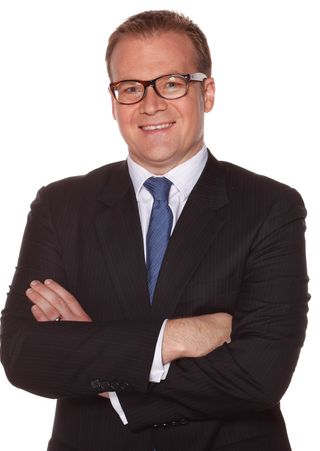ABC The Drum
If presidential hopeful Martin O'Malley can give Democrats someone else to consider and journalists someone else to write about, it will make the next 12 months more interesting, if not less predictable, writes
Former Democratic governor of Maryland Martin O'Malley has become the latest candidate to formally announce they are running for the presidency of the United States in 2016.
Governor O'Malley may conceivably become the Democratic Party's 'plan B' in the event that anything untoward happens to frontrunner Hillary Clinton — and O'Malley's own plan B may be the hope that he will earn a nomination as vice-president if Clinton's campaign doesn't falter.
O'Malley was pegged as a rising star of the Democratic Party as mayor of Baltimore from 1999 to 2007 when he helped reduce the crime rate more than any other major American city.
He also earned strong homeland security credentials in the wake of the September 11 attacks in 2001. As governor, O'Malley was seen as fiscally responsible, investing in education and infrastructure. He also signed state laws for marriage equality and laws to reduce gun violence.
While photogenic and energetic, the 52-year-old O'Malley isn't a great public speaker. He was dubbed the 'Rock n Roll Governor' and has fronted a Celtic-rock band since the 1980s, yet can come across as rather bland.
Since his time as mayor, rumours of infidelity have followed Governor O'Malley, and the fictional character Tommy Carcetti — the libidinous, ambitious Baltimore mayor from the TV series The Wire — is widely thought to have been based on him.
Throughout his career, no evidence has emerged of his alleged indiscretions, although the scrutiny of a presidential campaign and the memory of scandals including the one that hit senator John Edwards in 2008 could see the rumours revisited. That would add an interesting element to any contest with Hillary Clinton, given the extra-marital affairs of former president Bill Clinton.
O'Malley has made no secret of his plans to run for the presidency, and was fielding questions on the subject during the 2012 Democratic national Convention, which renominated president Barack Obama.
But he faces a delicate balancing act. Democrats will welcome O'Malley providing a sparring partner for Mrs Clinton, but nobody needs a sparring partner who lands heavy blows or risks knocking out the champ. Neither will it do the Democrats much good for him to pull his punches entirely. How hard O'Malley jabs at Clinton may depend on how likely he feels a vice-presidential nomination might be.
Not that right now O'Malley is thinking in those terms. Most if not all serious presidential contenders have identified the pathway they can follow to 1600 Pennsylvania Avenue. The playbook might go something like this: engage voters in early to vote retail politics states like Iowa, New Hampshire and South Carolina. If not causing an upset win, poll strongly enough to become a viable alternative — the headline-grabbing insurgent against the presumed nominee.
As soon as he finished his announcement speech in Baltimore, Maryland, O'Malley was on a plane to Iowa, where he's become a regular visitor over the past year or two.
As governor of Maryland, O'Malley endorsed Hillary during the 2007–08 White House run. For now, instead of attacking her personally, he is targeting the issue of the political dynasty on both sides:
The presidency is not a crown to be passed back and forth ... between two royal families. It is a sacred trust to be earned from the people of the United States, and exercised on behalf of the people of the United States.
But the Democratic contest is looking like a very civil affair, rather than a civil war. O'Malley reportedly called Mrs Clinton to inform her he was entering the race. She in return sent a very cheerful tweet, not-so subtly informing her rival what she thinks the campaign will be about:
Welcome to the race, Gov. O'Malley. Looking forward to discussing strong families and communities.
For now Hillary can set the agenda she likes; an average of polls has Secretary Clinton attracting 63.6 per cent support for the Democratic nomination, with O'Malley on 0.8 per cent.
To an extent, the greatest opponent Hillary Clinton faces is her aura of inevitability. Pundits and activists alike don't like to be told their opinion doesn't matter. If O'Malley can give voters someone else to consider and journalists someone else to write about, it will make the next 12 months before the actual nomination of the Democratic candidate a lot more interesting, but probably no less predictable.
This article was originally published in ABC The Drum





